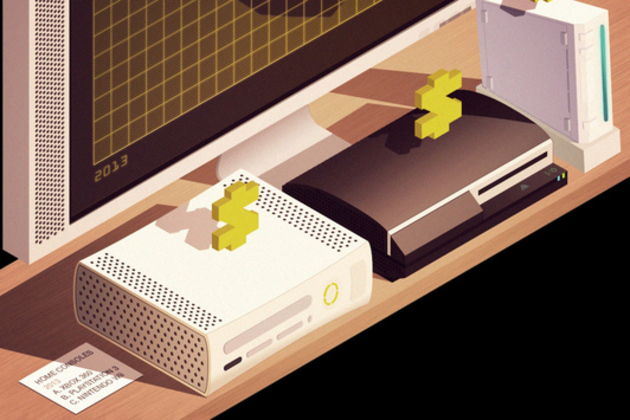The majority of video games in the U.S. are purchased and played by adults. The largest titles make money that Hollywood films could only dream of raking in, and the biggest players in the industry run multibillion-dollar multinational operations that employ thousands of people. Yet many consumers still think of gaming as a kid’s thing that doesn’t merit serious consideration or scrutiny. In an age where our culture recognizes previously sniffed-about industries like professional sports as much more than child’s play, it’s time to get over that same hump about video games.
Games, like film, TV, and literature before them, are commercialized art and products of our culture. They can be great or terrible, memorable or forgettable, and everything in between. They can be five minutes of dreck you play on your phone on the bus, or 500 hours of life-changing tramping around a richly imagined virtual world.
In 2013 alone they were also a $21 billion business in the U.S. And still, in the rare instance that the nightly news even mentions video games, it’s likely to be an ill-informed pundit grandstanding about violence in games, or video footage of “booth babes” and cosplayers at a convention, without considering the huge amount of money, time, and people involved.
This week, as they do every June, about 50,000 video game industry professionals and game-focused media will descend on Los Angeles for E3.
Nominally a trade industry conference, E3 has for nearly 20 years been not just a trade show but rather, a caffeine-fueled orgy of blazing virtual guns, polygon-count comparisons, and top-volume trailers for the Next Big Game.
By the numbers…
• 59% of Americans play video games
• 51% of all American households have a dedicated video game console
• 58% of all American adults have a smartphone
• 71% of players are over age 18
• 81% of young adults ages 18-29 play games
• 23% of seniors over age 65 play games
• 48% of players are girls or women
• 36% of players are women over age 18
• 17% of players are boys under age 18
Sources: Nielsen, Pew, and the ESA.
Large international companies dominate the show floor, with smaller developers scattered through hundreds of side-rooms, all of them holding endless screenings, demos, and interviews, clamoring for attention.
Major tech companies like Sony and Microsoft use the event not just to show off their games but also to announce major hardware launches, like last year’s PlayStation 4 and Xbox One.
But why does it matter, you might ask? Why do so many people get so caught up in the announcements, the trailers, the projections, the marketing, and the hype? Why should anyone except the most hardcore of console enthusiasts care about a single word that comes out of the L.A. Convention Center this week?
Because despite the lingering popular conception of video games as child’s play — and, specifically, boy’s toys — they are anything but. The business is, well, serious business.
What Does A Gamer Look Like?
Image courtesy of
Jason Cook
There is a tendency almost toward ethnography in the mainstream media whenever video games come up.
Earnest news anchors and reporters approach “the gamer” as a heretofore unknown species, a sub-type of aggressive young man whose befuddled mother doesn’t understand his “Nintendo” but who nonetheless stands a very good chance of growing up to be a productive member of society.
And sure, teenage boys like to play video games. But the truth of the matter is, they are far from alone.
In 2014, one might as well talk about a “TV-er” or a “movie-er” as a “gamer.”
About 59% of Americans play video games, according to estimates from the ESA (the gaming industry’s major trade and lobbying group).
Some quick math says that in a country of about 315 million, that’s just shy of 186 million players.
How does that compare to other media?
-
Movies: about 68% of Americans (214m) see movies in the theater (MPAA – PDF)
-
Cable: roughly 100 million Americans have paid-TV (cable/satellite/fiber) subscriptions
-
Premium cable: Game of Thrones, considered wildly successful, has about 18 million viewers per week.
-
Broadcast TV: The top-rated show the week of May 19 (ABC’s Dancing With The Stars) drew 15.5 million viewers
-
Netflix: Had a little over 33 million U.S. subscribers at the end of 2013.
Games now are at least as mainstream as any other pop culture in our fragmented media landscape.
Who’s playing? Pretty much everyone.
Having “a Nintendo” just isn’t what it used to be. In 2014, there are lots of players competing in the video game space — but the biggest competitor is one that makes the smallest devices.
It’s Not Just Shooters
The following list of 2013′s best-selling console games makes it clear that while big-budget, violent blockbusters are big business, so too are plenty of other kinds of games:
- Grand Theft Auto V
- Call Of Duty: Ghosts
- Madden NFL 2015
- Battlefield 4
- Assassin’s Creed IV: Black Flag
- NBA 2K14
- Call Of Duty: Black Ops II
- Just Dance 2014
- Minecraft
- Disney Infinity
According to ESA data, 32% of 2013′s top games were “action” and another 20% were specifically shooters, meaning half of all top-selling games fell outside of those two categories.
For PC-only games, strategy (38%) and casual (28%) titles take the day, while shooters and action titles together come to less than 10%.
Enter Apple, and the more than 500 million iPhones they’ve sold since 2007. Sure, mobile devices let us use Facebook and access mobile boarding passes and stream video and all the rest — but what they mostly let us do is play games.
In 2013, the most-downloaded and highest-grossing iOS app — ahead of YouTube, Netflix, Facebook, SnapChat, and Instagram — was Candy Crush Saga.
Candy Crush has seen its star fall a bit since it dominated the mobile airwaves last year, granted. But when publisher King prepared for their IPO this March, they claimed 408 million monthly active users.
That’s not 408 million people who downloaded the app once because some friend told them to and forgot about it; that’s players who actually open it and play the game somewhat regularly.
Predictably, Candy Crush and other “casual” puzzle, card, trivia, and social (think Words With Friends) games dominate mobile gaming. But what of all the “traditional” console and PC players out there?
Back in the land of “traditional” or “hardcore” gaming, the field is more evenly split.
Microsoft has sold about 83 million Xbox 360s, Sony’s sold a similar 80 million PlayStation 3 systems, and Steam, the most heavily-used PC gaming service, has over 75 million users.
Specifically tracking who’s playing what and where can be very difficult. Although every publisher knows exactly how many copies of every game it’s sold, the numbers are rarely public. And while the numbers of physical retail copies — the actual discs– of games sold are closely tracked, physical copies now account for less than half (47%) of estimated video game spending.
Although in 2014 the major industry market research group has started tracking digital sales, for the most part that remaining 53% remains largely mysterious, as each digital storefront — including Xbox Live, PlayStation Network, Steam, and other, smaller outlets — keeps its own numbers proprietary.
There is a whole enormous world of cheap and free small, independently developed and produced games out there.
But, as with movies and books, the big-budget blockbusters tend to make headlines and grab attention.
When Grand Theft Auto V launched, it reached $1 billion in sales in three days.
Seeing a large studio spend between $50 and $100 million on a video game is no longer uncommon. The most expensive video game produced so far is Grand Theft Auto V, which cost a reported $265 million to make.
That puts the big-budget blockbuster games about on par with big-budget blockbuster films, money-wise. Legendarily pricey Avatar probably cost Fox about $280 million, and three years later Disney spent a reported $220 million on The Avengers. So GTA V fits right in that range.
But gaming publishers, like Hollywood studios, are finding that the rate of return on that ludicrously large investment can sometimes be worth the risk.
In the history of the American box office, there are 18 movies that have grossed $1 billion or higher. The fastest to do it was Avatar, which hit the 10-digit gross mark in a scant 17 days.
When Grand Theft Auto V launched last September, it reached $1 billion in sales in three days.
That’s three days. Less than a week. The game hit store shelves and digital storefronts on Tuesday morning, and by Friday had sold $1 billion worth of copies.
Even acknowledging that many of the sales were pre-orders that took place over the months beforehand, and even accepting that a $60 game reaches money-based milestones faster than a $10 movie ticket does, that’s ridiculously fast. The previous record-holder was 2011’s Call of Duty: Black Ops II, which cruised to an easy 15-day billion after making the first half in just 24 hours.
But smaller-budget games, in the mobile-friendly era, can make bank even more reliably than their big-budget cousins. Those “free” Facebook and mobile apps, laden with microtransactions and $0.99 shortcuts, are cash cows for their publishers.
The specific numbers are tightly-guarded, but back in February, a hacker released what was allegedly the financial information from mega-hit Clash of Clans (the new Candy Crush Saga, as these things go).
Nobody verified the data, so it’s worth taking with a grain of salt, but the images released claimed that developer Supercell takes in $5 million per day from its free-to-play games.
How The Game Makers Fail Gamers
Image courtesy of
Alan Rappa
Whenever there are billions of dollars at stake, there are companies who will try to make a few million more by cutting corners and not caring how it harms workers or consumers.
For example, video game publisher EA managed to take Consumerist’s Worst Company In America trophy two years running before losing out to Time Warner Cable (and ultimately, to Comcast) this spring.
That’s a lot of ill-will for an entertainment media company to have built up over a few years, particularly as their games remain generally well-liked top sellers. But when consumers vent their hostility at the way EA has treated them, they have ample targets just from the last 2-3 years:
As games become more popular, more ephemeral, and more and more part of a streaming on-demand or rental-access future, consumers have more chances to get screwed over and less opportunity for recourse, meaning game publishers will only continue to ship more titles that are broken and incomplete.
If the movie studios sent films to theaters with missing reels and promised to send out the missing minutes a within a few weeks of release, it would be front page news.
If book publishers knowingly sent out books with screwed-up page numbers and chapters in the wrong order with the promise that you’d get a fixed version in a month or so, and another fixed version a few weeks later, then another, and another, no one would buy books anymore.
We should be holding video game publishers to the same standards.


 I've been eating nutritional yeast essentially my entire life and love it on so many dishes, but I realize most people don't know what it is, so here's a quick rundown of its benefits and 11 ways to use it.
I've been eating nutritional yeast essentially my entire life and love it on so many dishes, but I realize most people don't know what it is, so here's a quick rundown of its benefits and 11 ways to use it.






























 A before and after photo of Lexington Avenue tells the story.
A before and after photo of Lexington Avenue tells the story.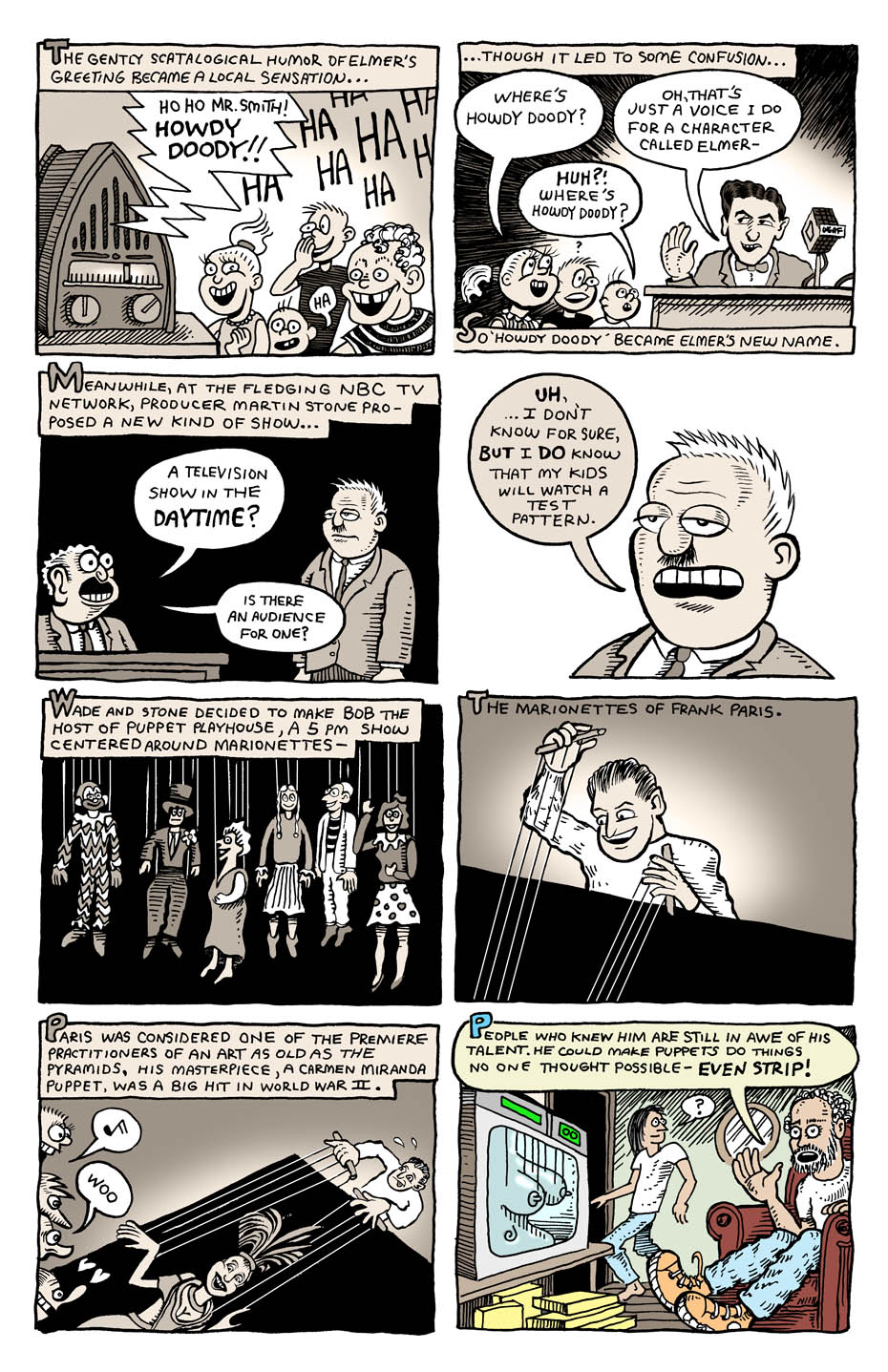
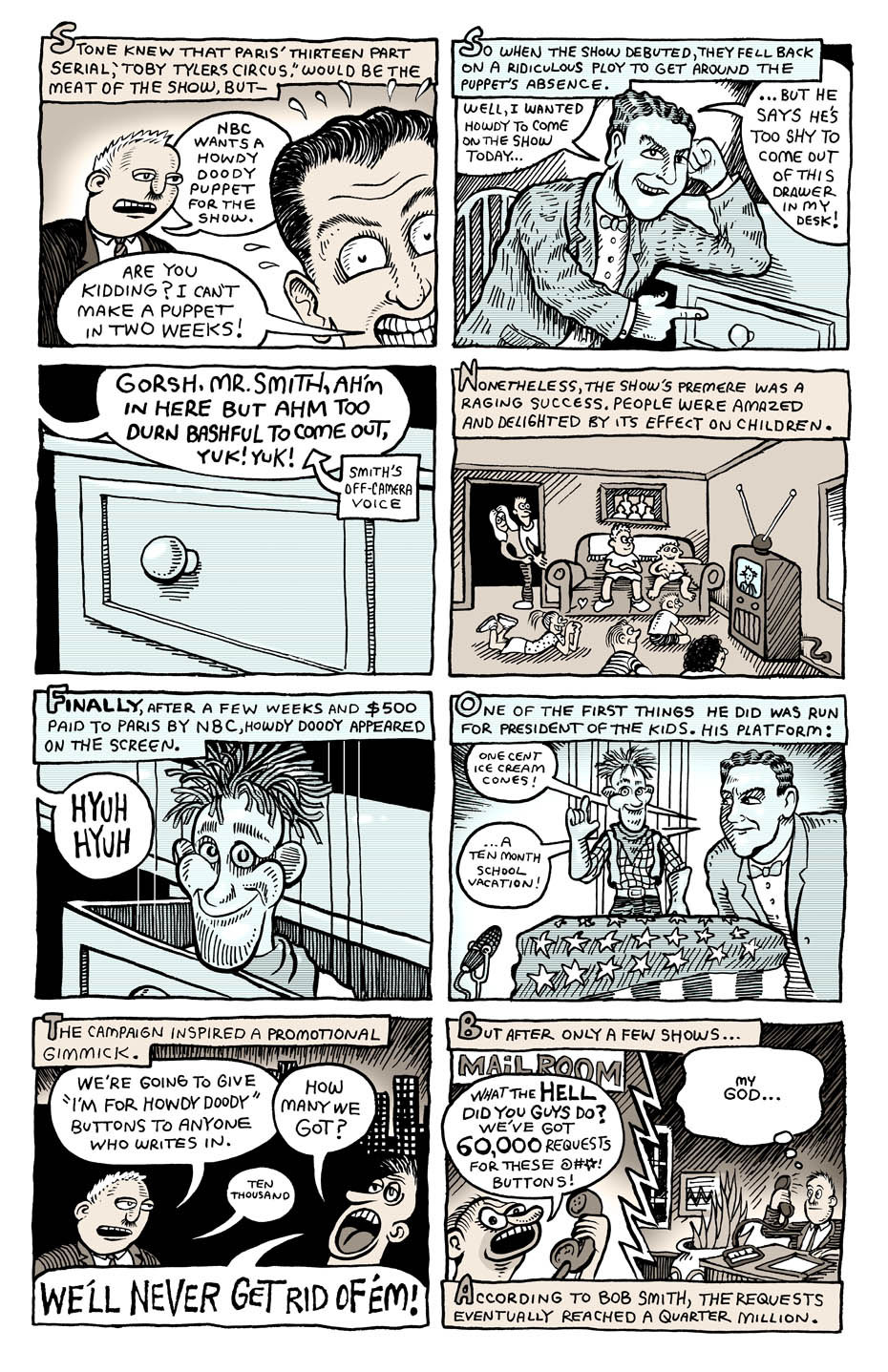
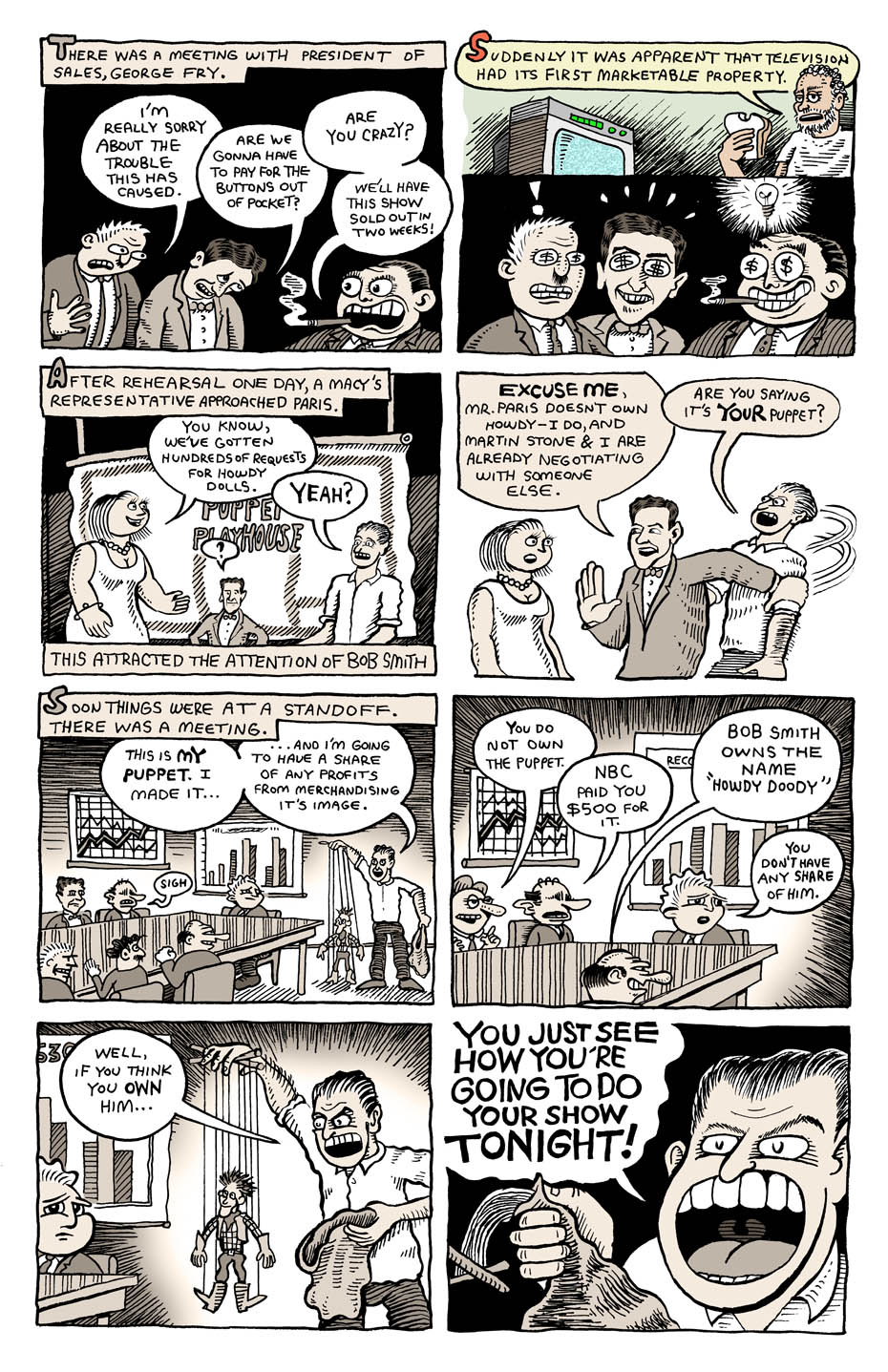
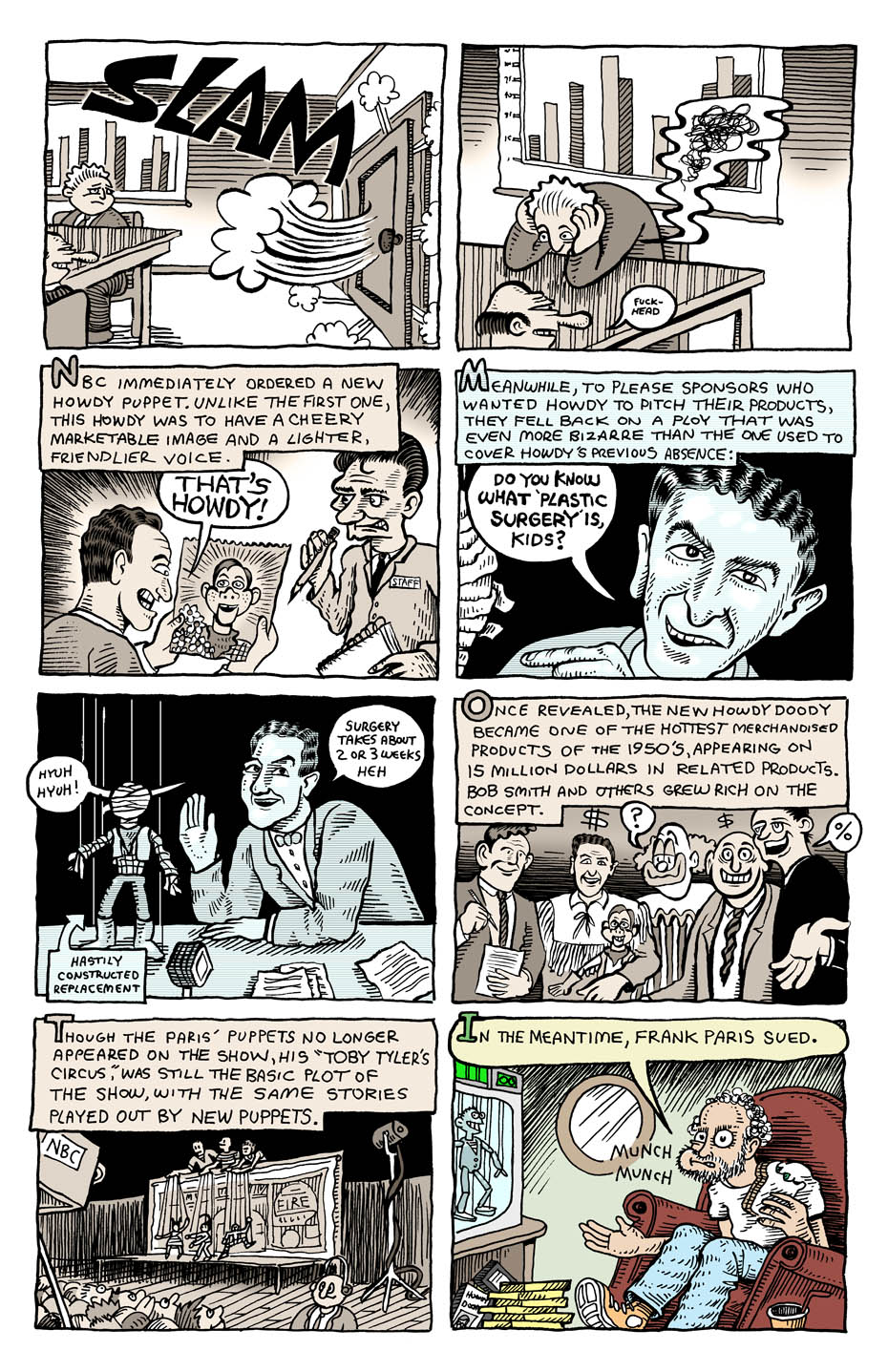
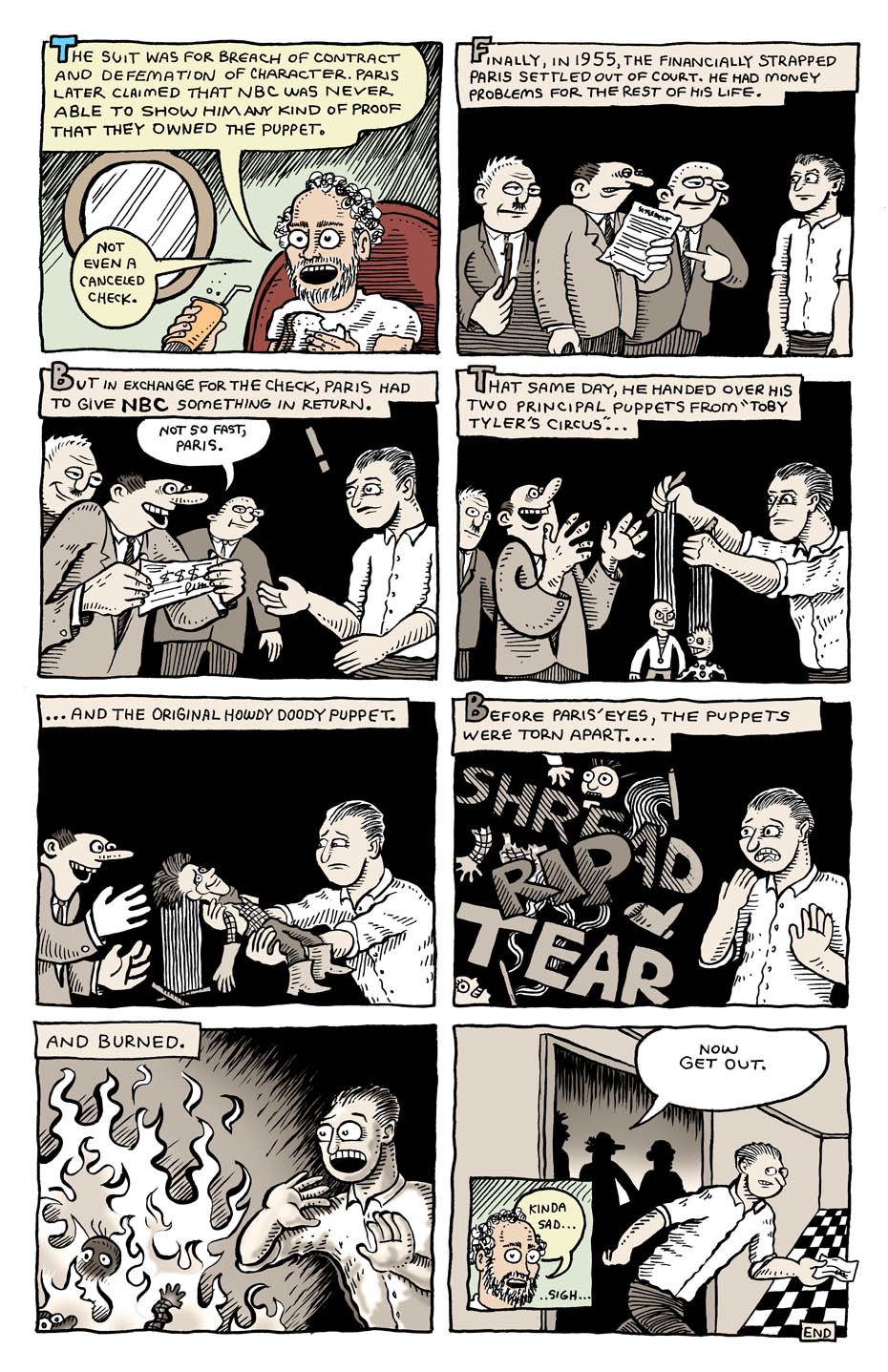









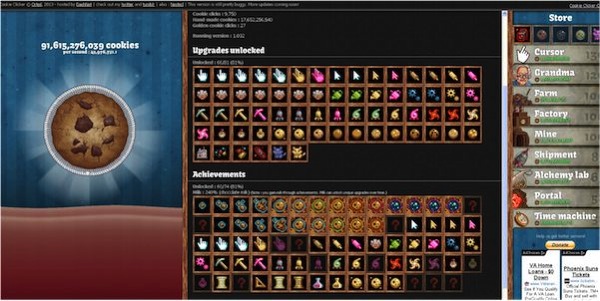

















 One of my best friends and I have a saying we use all the time: “You don’t need to worry, I’ve already over thought it.” No doubt this is one reason she and I get along so well – we think the same way, and we both over analyze nearly everything. Really, everything. Sometimes this can be a bit of a burden, but when I’m experimenting with recipes in the kitchen it can be pretty useful. We’re in the midst of birthday season at work and when a coworker chose samoa cupcakes, my mind immediately went into overdrive. ”How do I ensure that the chocolate cake doesn’t overpower the flavor of the topping? Should I even use chocolate cake? How do I incorporate the shortbread cookie component? What kind of frosting should I make? Does frosting even belong on these cupcakes?” These are just a few of the questions I pondered out loud and poor Ben did his best to humor me with a response.
One of my best friends and I have a saying we use all the time: “You don’t need to worry, I’ve already over thought it.” No doubt this is one reason she and I get along so well – we think the same way, and we both over analyze nearly everything. Really, everything. Sometimes this can be a bit of a burden, but when I’m experimenting with recipes in the kitchen it can be pretty useful. We’re in the midst of birthday season at work and when a coworker chose samoa cupcakes, my mind immediately went into overdrive. ”How do I ensure that the chocolate cake doesn’t overpower the flavor of the topping? Should I even use chocolate cake? How do I incorporate the shortbread cookie component? What kind of frosting should I make? Does frosting even belong on these cupcakes?” These are just a few of the questions I pondered out loud and poor Ben did his best to humor me with a response. As for my final answers to those questions, here’s where we ended up: I made small shortbread cookies for the base of the cupcakes (though you can use store bought, I won’t tell.) The cupcake itself is
As for my final answers to those questions, here’s where we ended up: I made small shortbread cookies for the base of the cupcakes (though you can use store bought, I won’t tell.) The cupcake itself is  As a former Daisy-Brownie-Girl Scout (whose favorite cookie is Caramel DeLites/Samoas), I approve these cupcakes.
As a former Daisy-Brownie-Girl Scout (whose favorite cookie is Caramel DeLites/Samoas), I approve these cupcakes.